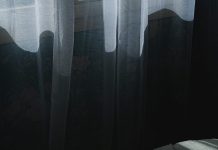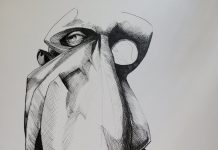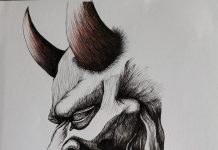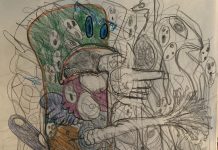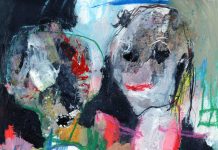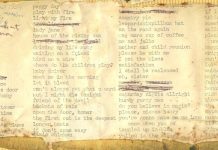Dougherty: Lyn, what would you say to a young writer who had her sights set on poetry?
Lifshin: I’d probably suggest she go for a degree in something she can rely on. The Black Mountain poets never thought of poetry as a profession but as something that was fun and joyful—not a career. Making it a career for most people in academia means something very different, political, cliquish.
Dougherty: Why poetry—for you? What’s in it for you?
Lifshin: I can’t imagine not writing poetry—it’s an obsession. It’s gotten me through some difficult times. I can actually still remember being enraged when my long-ago-ex was running around going into his closet and slashing to pieces one of those Resuscitating Annie dolls they use to teach CPR, and how I cut it into pieces along with a few shirts and then wrote “No More Apologizing,” one of my most anthologized poems.
| Audio files by Lyn Lifshin |
Often—not so much maybe lately—I don’t feel alive unless I’m writing. I can remember what I wrote and where I wrote it in each of the places I’ve lived, and it usually brings me a feeling of warmth and calm.
Dougherty: So poetry is a calming force for you?
Lifshin: It’s hard to say what’s in it for me. It’s the act of writing that is the most fun. Or doing the research. Often a book comes from a request for a certain subject for an anthology. My two little Barbie books came about when Richard Peabody was looking for poems for Mondo Barbie. Never having had a Barbie or a daughter who had one, I had to do Barbie research. I remember reading in Chicago at MLA at the Palmer House and going to toy stores looking at Barbie books and dolls to try to get a sense of Barbie. I ended up with about 70 poems, 3 or 4 in Mondo Barbie.
My Marilyn Monroe poems grew the same way: Peabody asked for poems on Marilyn Monroe—I’d never written any and probably never would have. But I’d just moved to DC from upstate New York and everything was new and strange and I wandered through the museums imagining Marilyn wandering around the city, trapped in a fancy mansion but lonely, bored, a misfit, unsure of the future. So I imagined how she felt and wrote about her feelings at the National Gallery, The Corcoran, Dupont Circle. I could see the Washington Monument from a window seat in my apartment and I free flowed, imagining her dreams, wishes, fears.
Dougherty: What’s your stance toward religion?
Lifshin: In the small New England town I grew up in, if you didn’t go to the Catholic School it meant you were Protestant and vice versa. There were no other choices. Only my grandparents and one other family were Jewish. And almost everyone was white. That probably was the beginning of feeling on the outside, so typical of artists. We had a little Christmas tree we’d shove in the closet when we heard my grandfather coming up the stairs. Christmas was pretty much a commercial holiday, but Easter made me feel especially an outsider. We had a flat on Main Street and on that day Main Street, our front yard, was filled with throngs in pastel clothes on their way to services. We celebrated the big Jewish holidays at my grand parents but did little else during the rest of the year. In high school, if I saw “Kike” on the blackboard, I knew it was meant for me. In college I joined a Jewish sorority but felt like an outsider there, too, not knowing the Jewish and Yiddish phrases my roommate tried to teach me with her Rochester accent! I got married in a synagogue and have gone to what seems like many funerals since. What I see now is how the social atmosphere and the rituals seem comforting to so many, the traditions beautiful, and I do feel I’ve missed something.
Dougherty: Relationships with the opposite sex. Could you free-associate about this topic?
Lifshin: I still go with what Diane Wakoski said—I don’t have the exact quote but it’s something about seeing a man with a ring on his finger and imagining a lifetime with him. But the man you are with, who you truly share your life with, rarely becomes the subject of poems. Something like that. The unavailable, the challenge—the agony, ecstasy, the lost—they seem to make the best, most intense poems.
The too-real dream of guilt in one glance
I’ve been living with someone
who is good but a lover, an ex-con
hunk’s back in town. It doesn’t
matter he’s been dead for decades.
Or the man I’m with now never
knew him, except in poems he
hates me to read or even include
in collected poems. Gone so long
even the other women he cast
a spell on have stopped writing me,
wanting to suck out every detail
of his days with me. Some were so
sure he was the most enchantingly
dangerous but desirous man. If
I didn’t have one photograph
of him scanned, I’d never remember
his face or how we spent afternoons
together, how I rushed to flush
the toilet after his cigarette butts
before my husband came home and
I left tins of lasagna for him when
he lived in the trees. Now, I don’t think
there was enough for a whole
book, just a few very strong poems.
I tell my best friend that lately
he’s been calling. Nothing could more
easily ruin my life. I un-list my
lips but he keeps texting . My friend
warns me but I can’t quite
close the door and then, before I’ve
done anything, there’s this moment with
this man I am with. I’m two flights
above a staircase that curves
around on a lower floor and he stares
at me coldly. It was as if I’d already
done something. Ice in his eyes
that are usually smiling and I know
I’ve strayed, gone into this fantasy
am about to turn to stone
Dougherty: What’s your take on how the world of poetry has changed over the past, say, 40 years?
Lifshin: There’s been an enormous proliferation of writing degrees—and then the need for the overwhelming number of graduate poets in need of a job—resulting in yet more writing programs, more graduates looking for teaching jobs where they, hopefully, can also teach creative writing, assign their own work and the works of their friends, build up a following, a clique of writers probably writing in ways very influenced by their tastes and style, and then the awarding of prizes to those writers. And there is an amazing overflow of poets! In the past, editors were not having to deal with so many submissions, having to limit submissions (something I have violated, I know) and accepting submissions at limited times of the year. When I edited the anthologies of women’s writing, Tangled Vines, Adriane’s Thread, and Lips Unread, I had a pretty good sense of the best women writing at the time. I also put an announcement in Poets and Writers and did discover writers new to me. If I were to edit an anthology today, I’d be overwhelmed, and I definitely don’t feel I have a handle on many of the best writers.
Dougherty: And the business of being a poet?
Lifshin: When I first began to do readings, I travelled two or three times a month all over the country—the fees paid were higher than all but the best known poets now get. Later, when I moved to D.C., I was shocked: everyone was so anxious to read; the idea of being paid didn’t occur to them. I think reading is work, and after getting substantial fees, often with the help of Poets and Writers and at a time when universities seemed to have more money for the arts, or more interest in them, D.C. and Virginia were so different. For the first Mother’s Day I sent out flyers to do a Mother’s Day reading or do a radio interview. I was surprised— I did get some offers but there was no fee. Poets and Writerstold me to have them apply for funds, but most venues didn’t understand paying for poetry readings! I taught frequently at colleges, libraries, universities, museums, bookstores in the Tri City Area of New York—Schenectady, Troy, and Albany. I always got paid, and there I had been offered poetry teaching jobs when I had hardly published much at all.
Dougherty: The arts and D.C.: It’s a relationship similar to that of plant life and air pollution.
Lifshin: One positive thing that happened to me in D.C. was being interviewed by The Washington Post Magazine. Mary Battiata interviewed me, followed me around different interesting spots in D.C., followed me to a reading in New Jersey and I think also to the World Trade Center. It was exciting, and I was pleased with her article—one of the few times I felt connected to the area where there are so many little cliques, some welcoming.
Dougherty: Are print publications as important to you as they used to be?
Lifshin: After packing up all my contributor copies to have a room painted, I could have screamed. But they are often beautiful, seem more real. It’s hard to say.
Dougherty: Could you describe your writing process for us—the actual way that you typically go about writing?
Lifshin: Some of my writing process involves wandering around museums and art galleries, reading other poets. Sometimes a movie will start a poem. I was once asked for a poem in an issue of erotica Ginsberg was doing. I got an idea and wrote several pages on the wrappers of some Wrigley’s spearmint gum. I often catch a bit of conversation eavesdropping on the metro or in other public places and a poem begins with that. Photographs, a line from a song, almost anything can start a poem or a series of poems. I tend to write in the morning, on the metro, at the kitchen table. I used to write in bed. I remember writing several November poems as it began to get dark at a table in Vienna on the first day of snow.
Dougherty: And the urge to write…has it always been there?
Lifshin: I was told my mother came to the conclusion that I’d be a writer before I was 3 years old—that is, if I didn’t become the actress she had in mind when she named me Rosalyn Diane—when I announced during a drive in the country that the trees looked like they were dancing. Leaves, trees, bark and branches, heartwood and tangled vines still stud my work. I often write of women who, Daphne-like, merge with trees to escape.
In my junior year at Syracuse University, I wrote, cast, directed, and starred in a musical comedy—as a poet, what else? I created a full scale dance and song performance about life in Greenwich Village, the highs and lows of living there. I wrote songs, monologues, and dialogues to be set to the music of South Pacific. My bit was about a poet who thought she has “anapests and dactyls, and sentiment so true, onomatopoeia, the thing that makes her blue.”
Dougherty: If you were teaching creative writing class right now, what would you tell the students?
Lifshin: When I teach, and I suppose when I write, I say details make the lie more believable. The students giggle and think it’s great that I encourage lying. But in a way, the poem is the lie, artificial, can go where it wants. Nothing they do has to be true or real or even make sense. I try to look, listen, touch. I used to keep a diary and go back to that at times. I looked around my house—saw where a head touched the back of a chair and wrote up a lifetime about that. I often surround myself with photographs and imagine lives of those I can never really know. I keep mementos, playbills. I always have a notebook when I walk around the pond. Although little changes, something always does, enough to start a poem.
Still there’s little we know beyond our senses. and you must trust and value your feelings. As Anaïs Nin said, the deeper you go into yourself, the more you touch others. Sometimes I just start writing, scrawling words when I have no idea where they will go and then see if there is a kernel of a poem. Never worry if you are going off in wildly different directions. It is good to let the poem take you where you had no idea you would go. I’ve collected postcards, names, and intriguing words. Have free-flowed from awful things that happened: accidents, scars, illness, disasters. The folklore of herbs and roots is always fascinating. If you are cleaning out a room belonging to someone close to you, as I’ve done, let their objects remind, connect, outline who they were, who you were in connection to them. Old dishes clothes, phone books, old address books, bits of baby clothes, stained sheets, a cigarette-burned coffee table. Each object is bursting with stories.
Dougherty: If you could go back to being, say, 20, what would you change about your life or how you approached it?
Lifshin: I’d start dancing earlier—ballet, ballroom, and Argentine tango. I might have considered a more stable career, but I don’t know. Medicine is the most depressing thing to me, so that would have been out. Maybe law. I’ve been extremely lucky—getting into poetry before it became such a competitive business. Maybe that’s an unfair thing to say, and maybe it isn’t true. But as one of the few women writing in the 70s and 80s, I think I had a lot of advantages.


